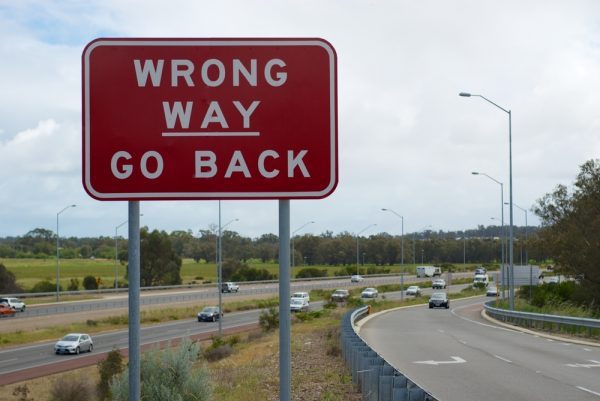The Western District Takes a Wrong Turn on the UM/UIM Highway

A new federal UM/UIM “bad faith” decision out of the San Antonio Division of the Western District of Texas – Civil Action No. SA-19-CV-00180-FB-ESC, Trejo v. Allstate Fire and Casualty Ins. – involves claims against an insurance adjuster and allegations of improper joinder remand. The magistrate’s report in Trejo found an Insurance Code cause of action against the adjuster under Chapter 541 despite the Texas Supreme Court’s decision in Brainard v. Trinity Universal Ins. Co., 216 S.W.3d. 809 (Tex. 2006). Trejo held the adjuster was a proper party to the case destroying diversity jurisdiction and requiring remand.
Trejo gives short shrift to the decisions of the Texas Supreme Court in Brainard and its progeny, which hold that a claim for UIM benefits is not ripe until the insured secures a judgment establishing both the liability of the tortfeasor and the amount of damages. See Brainard, 216 S.W.3d at 818 (construing the phrase “legally entitled to recover” to require a judgment establishing the liability of the tortfeasor and damages); Henson v. Southern Farm Bureau Cas. Ins. Co., 17 S.W.3d 652, 653-654 (Tex. 2000) (holding prejudgment interest could not be recovered because there was no coverage until after a judgment establishing the underinsured motorist’s liability); Weber v. Progressive County Mut. Ins. Co., 2018 WL 564001, at *3 (Tex. App.–Dallas 2018, pet. denied) (concluding trial court did not abuse its discretion when it sustained special exceptions that the policyholder’s UIM claim was premature because her petition did not assert she had obtained a judgment against the underinsured driver; thus, she did not establish the existence of a duty or obligation the insurer failed to meet); In re Liberty Cty. Mut. Ins. Co., 557 S.W.3d 851, 856 (Tex. App.–Houston [14th Dist.] 2018, orig. proceeding) (holding “[UIM] insurer’s contractual obligation to pay benefits does not arise until liability and damages are determined”); Blevins v. State Farm. Mut. Auto. Ins. Co., 2018 WL 5993445, at *15 (Tex. App. – Fort Worth, Nov. 15, 2018, n.p.h) (citing Brainard and holding that there is “no contractual duty to pay benefits until the insured obtains a judgment establishing the liability and underinsured status of the other motorist”); In re Germania Ins. Co., 2018 WL 1904911, at *3 (Tex. App.– Corpus Christi 2018, orig. proceeding) (citing Brainard for the proposition that “a claim for [uninsured motorist] benefits is not presented until the trial court signs a judgment” resolving these issues); In re Allstate Fire & Cas. Ins. Co., 2017 WL 5167350, at *4 (Tex. App.–Tyler 2017, orig. proceeding) (holding that under Brainard “a claim for [uninsured motorist] benefits is not presented until the trial court signs a judgment” resolving these issues); Allstate Ins. Co. v. Jordan, 503 S.W.3d 450, 455 (Tex. App.–Texarkana 2016, no pet.) (emphasizing that under Brainard an “insurer breaches the contract by withholding benefits after the insured has obtained a judgment establishing the liability and underinsured status of the other motorist”); In re United Fire Lloyds, 327 S.W. 250, 255 (Tex. App.–San Antonio 2010, orig. proceeding) (noting Brainard clearly held the UIM carrier has no contractual duty to pay the UIM claim until the policyholder “obtains a judgment” establishing the tortfeasor’s liability and underinsured status); Mid-Century Ins. Co. of Tex. v. McLain, 2010 WL 851407, at *3 (Tex. App.–Eastland Mar. 11, 2010, no pet.) (holding “[t]he UIM insurer is under no contractual duty to pay benefits until the insured obtains a judgment establishing the liability and underinsured status of the other motorist”).
Basically ignoring the foregoing Texas decisions, Trejo based its holdings on the Fifth Circuit’s Hamburger decision, which rejected the argument that liability cannot be reasonably clear until the insured has a judgment. See Hamburger v. State Farm Mut. Auto. Ins. Co., 361 F.3d 875 (5th Cir. 2004). Hamburger, however, was decided two years before Brainard and long before Menchaca and the Texas Supreme Court’s denial of review in Weber. In Weber, the Dallas Court of Appeals affirmed the dismissal of all “bad faith” claims because they were premature under Brainard. The Texas Supreme Court denied review in Weber after calling for briefing on the merits, thus rejecting the very argument the Trejo court found compelling. There is a very strong argument that Hamburger is just flat wrong under Brainard and its progeny. In Menchaca, the Texas Supreme Court held there can be no “bad faith” liability – Insurance Code or otherwise – unless the insured is “entitled to benefits.” Under Brainard and Weber – without something more – there simply is no “bad faith” for a garden-variety failure to pay benefits prior to judgment. Trejo igores the fact that Hamburger is out of line with numerous Texas decisions. Moreover, although Trejo pays lip-service to Menchaca’s “independent injury” rule, the decision mangles application of that requirement with its observation ‘that Trejo’s bad-faith claims against [the tortfeasor] are not premised on an independent-injury theory. Id. at *18.
Probably the most that can be said about Trejo, is that the decision reflects the continuing failure of some Texas courts to grapple with and properly apply Brainard and its progeny.